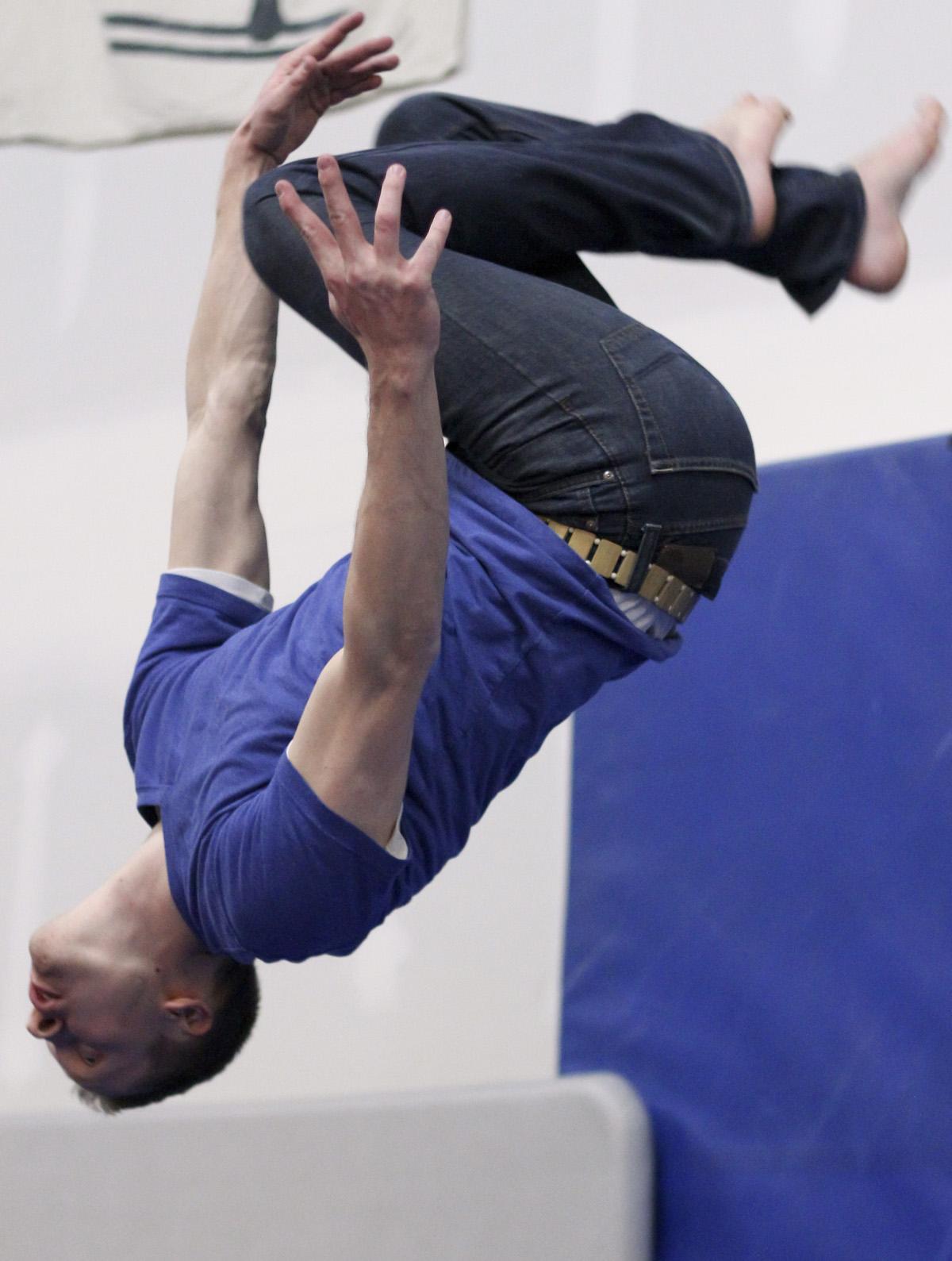Tuck and roll
As Travis Flitton stood on the edge of a two story building, he took a deep breath before preparing to jump. Once he had kicked off the wall, he knew he had to commit to the trick or he could be seriously injured.
To do the double drop, Travis hung from the wall off the building with both his feet and hands secured. He kicked off the wall, did a front flip and landed on the ground.
Flitton is a parkour enthusiast. Parkour is an extreme sport or type of training to learn how to get around obstacles swiftly and smoothly. It includes rolling, jumping, vaulting, climbing and running. Many people, like Flitton, enjoy the challenge and the adrenaline rush.
“That moment when I kicked off the wall and had to commit to the trick was the scariest thing in parkour I’ve ever done in my life,” said Flitton, a sophomore majoring in psychology and exercise science. “If you don’t push off the wall in this trick, you will fall on your face.”
Although his landing wasn’t perfect, Flitton said he finished his trick uninjured.
“I landed it. I didn’t roll anything, and I didn’t break anything,” Flitton said. “It was a bit of a rough landing, but it turned out OK.”
David Harris works at Altius Gymnastics Academy, where parkour classes are taught every Monday, Wednesday and Saturday. At these classes, Harris said safety is emphasized.
“There are some general guidelines to follow,” Harris said. “You need to know what you’re doing and have a foundation. There is a progression for every skill.”
Caleb Mairs is a freshman who said he’s tried parkour. He said he first became interested in the sport in high school. Though he’s never taken a class, he said experience as a cheerleader and a gymnast lend to his affinity for parkour.
He said newcomers to the sport should try it in a gym first.
“There are plenty of gyms in Logan, so I would try that before going to test it out on the cement,” he said.
Mairs said he has fallen on his head a number of times while trying new tricks. Flitton said people who have never done parkour should learn the basics first.
“I think the most common mistake is going too big too fast. My advice is to learn to roll,” Flitton said. “In a sticky situation, if you’re calm, you can get yourself into a better situation. If you bail out of a trick, you know you’re not going to make it, and you’re going to get hurt.”
Harris said he’s been doing parkour for about one year. He said his biggest piece of advice is, “When in trouble do the double, when in doubt tuck it out.”
This means in tricky situation, an individual should curl up into a ball and, whether going forward or backward, he or she can spin and roll out of it to stay safe, he said. A tuck is similar to a back flip, he said.
Flitton said he was once out with a group of friends doing parkour on a jungle gym in a park. The friends were hopping on the monkey bars and one of them did a long jump. He slipped and fell, because the sprinklers were recently on and the group didn’t realize it. Flitton said his friend fell back onto the bars and landed face first on the ground.
Flitton said he’s also done parkour on campus at USU. One time he and three friends jumped off the second story of the parking terrace by the Taggart Student Center. He said his friends decided they could make the trick if they hurled themselves over the edge, flipped, landed and rolled on the ground.
Tyson Mertlich, a junior majoring in psychology who’s been doing parkour for seven years, said a friend of his had a dangerous experience while scaling a building with multiple tiers. He didn’t realize how dusty the building was, so he slipped and fell, he said.
“You need to know your limits and (not) do anything stupid,” Mertlich said. “Be aware of your surroundings and make sure they aren’t dusty or wet.”
Mairs said there are a lot of rules to follow, but parkour is still a fun thing to do.
“I think it is cool how people do stuff without pads, and how they just run around and it’s totally wild,” Mairs said. “The coolest thing I’ve ever done would probably be scaling my own house.”
– victoria.hepworth@aggiemail.usu.edu

